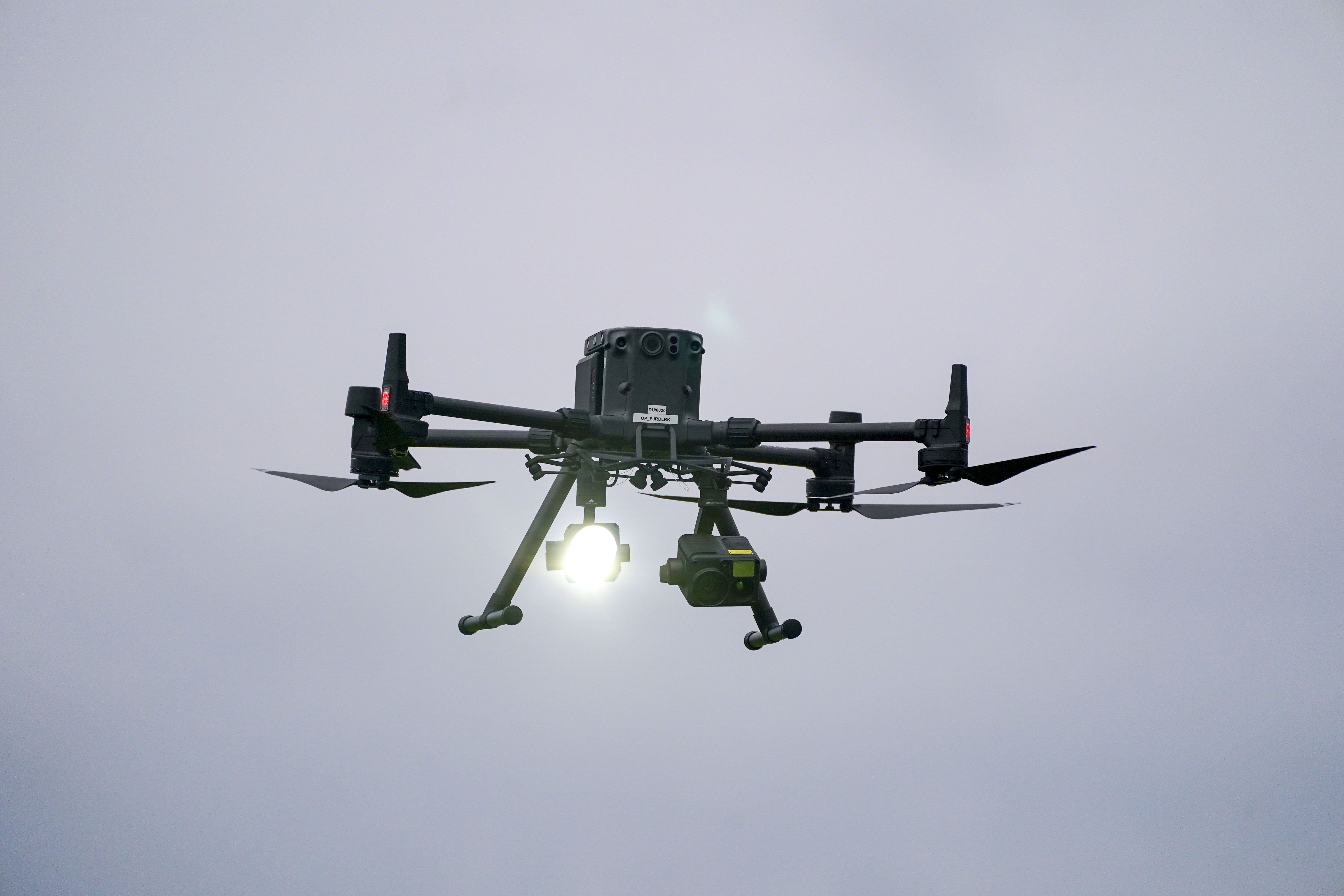Flying taxis could take off in two years under Government drones plan
The Department of Transport has published its Future of Flight Action Plan.

Your support helps us to tell the story
From reproductive rights to climate change to Big Tech, The Independent is on the ground when the story is developing. Whether it's investigating the financials of Elon Musk's pro-Trump PAC or producing our latest documentary, 'The A Word', which shines a light on the American women fighting for reproductive rights, we know how important it is to parse out the facts from the messaging.
At such a critical moment in US history, we need reporters on the ground. Your donation allows us to keep sending journalists to speak to both sides of the story.
The Independent is trusted by Americans across the entire political spectrum. And unlike many other quality news outlets, we choose not to lock Americans out of our reporting and analysis with paywalls. We believe quality journalism should be available to everyone, paid for by those who can afford it.
Your support makes all the difference.The first piloted flying taxi could take to the UK skies in two years under Government plans which could also see regular drone deliveries by 2027.
The Department of Transport (DoT) has released its Future of Flight Action Plan which also proposes flying taxis without pilots on board by 2030.
It also foresees regular use of crime-fighting drones and critical 999 care deliveries by the end of the decade.
The “roadmap” – or more precisely flight plan – would mean the adoption of technology “once confined to the realm of sci-fi”, according to the DoT, with drone technology boosting the country’s economy by £45 billion by 2030.
Aviation and technology minister Anthony Browne said: “Cutting-edge battery technology will revolutionise transport as we know it – this plan will make sure we have the infrastructure and regulation in place to make it a reality.
Aviation stands on the cusp of its next, potentially biggest, revolution since the invention of the jet engine
“From flying taxis to emergency service drones, we’re making sure the UK is at the forefront of this dramatic shift in transportation, improving people’s lives and boosting the economy.”
The proposals would also allow drones to fly Beyond Visual Line of Sight (BVLOS) so the sector can grow without limiting the skies for other aircraft.
They also aim to reinvigorate smaller aerodromes by setting out how they can operate as vertiports for electric aircraft that take off vertically (known as electric vertical take-off and landing or eVTOL aircraft).
The plans develop standards to improve security for drones to boost public safety and look at ways of involving communities and local authorities so they can benefit from the potential economic and social benefits.
The action plan was announced as Mr Browne was set to visit Vertical Aerospace in Bristol – one of the UK companies making flying taxis which are currently undergoing the Civil Aviation Authority’s (CAA) authorisation process.
Stephen Fitzpatrick, founder and chief executive of Vertical Aerospace, said: “With Government and business working together, we can unleash the huge economic, environmental and social benefits of zero emissions flight globally.”
Sophie O’Sullivan, CAA head of future safety and innovation, said: “Aviation stands on the cusp of its next, potentially biggest, revolution since the invention of the jet engine.
“Drones, eVTOL, and other different vehicles have the potential to change transportation options forever.
“Our role in this bright future of aviation will be enabling technological advances and providing regulatory support, while ensuring that all forms of new aviation technology enjoy the same high safety standards as traditional aviation.”
The plans aim to build on current uses of drone technology, such as the use by West Midlands Police to tackle violent crime and anti-social behaviour.
In July 2023, a drone team successfully identified two offenders and another suspect at a speed and distance that would have taken ground officers hours to track down.
In the NHS, drone service provider Skyfarer has partnered with University Hospitals Coventry and Warwickshire NHS Trust and Medical Logistics UK to test drones to deliver surgical implants and pathology samples between sites, cutting delivery times by up to 70%.